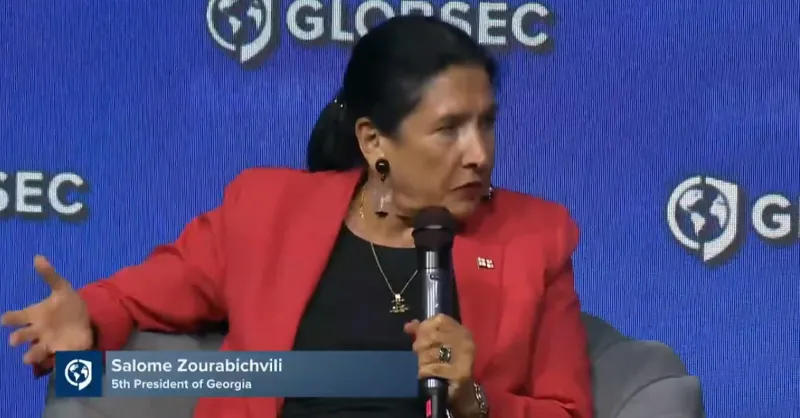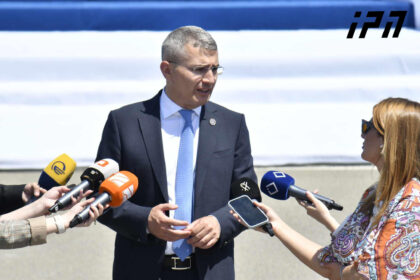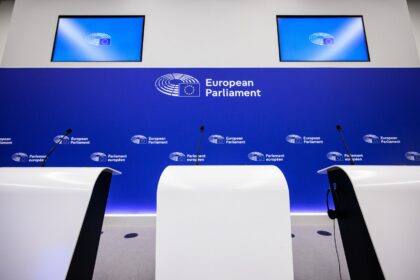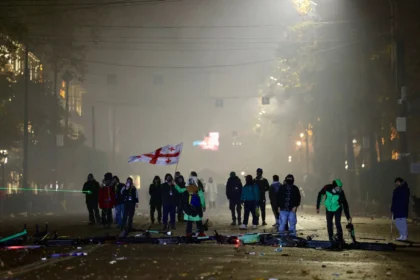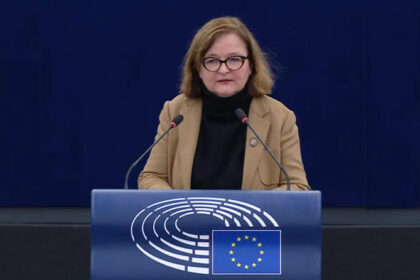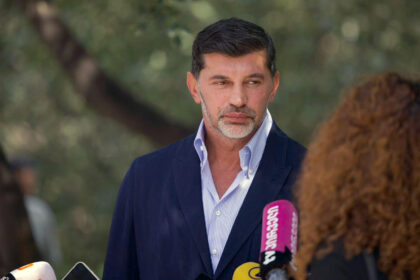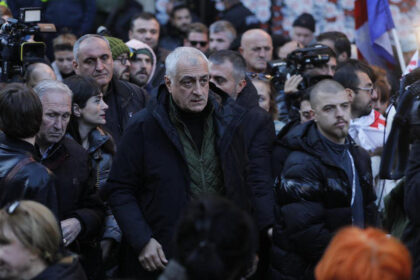**Georgia’s President Urges European Union to Take a Stance Against the Country’s Ruling Party**
In a recent discussion at GLOBSEC 2025, Georgia’s President Salome Zurabishvili called on the European Union to take a stronger stance against the country’s ruling party. The President emphasized that the situation in Georgia is stuck and that the EU must say clearly whether the country will continue down the Russian path or return to its democratic roots.
President Zurabishvili pointed out that while the ruling party may seem increasingly strong due to repression, there are signs of internal hostility and a lack of trust within the party. She noted that the population has been protesting for two and a half years, and it’s time for the EU to describe the reality of the situation. The President urged the EU to say that Georgia is not just experiencing a political crisis, but a full-scale takeover by Russia.
The President suggested that the EU should offer the ruling party a choice: either return to the democratic path that Georgians have always wanted, or continue down the Russian path and face the consequences. This “conditionality” policy, similar to the proposed U.S. MEGOBARI Act, must be attached to a specific calendar, making it clear what is expected of the ruling party.
**Analysis**
President Zurabishvili’s comments highlight the growing concern about the state of democracy in Georgia. The country has been experiencing a prolonged crisis, with protesters demanding change for over two years. The President’s call on the EU to take a stronger stance reflects the frustration and desperation felt by many Georgians.
The President’s emphasis on the need for clarity and specificity is also noteworthy. By attaching conditions to a specific date, such as October 4th, President Zurabishvili aims to create a sense of urgency and accountability. This approach may put pressure on the ruling party to make a choice about its future and potentially pave the way for democratic reforms.
**What’s Next?**
The European Union’s response to President Zurabishvili’s call will be closely watched by Georgians and international observers alike. The EU has previously been criticized for being too soft on authoritarian regimes, but recent statements from top officials suggest a more assertive approach.
If the EU were to adopt a policy of conditionality with a specific deadline, it could mark a significant shift in the country’s trajectory. However, such a move would also come with risks and uncertainties, as it would likely lead to increased tensions between the ruling party and the opposition.
**The People Demand Change**
As President Zurabishvili noted, the population has been protesting for two and a half years, showing remarkable resilience in the face of repression. The people’s demand for change is clear: they want a return to democratic values and a break from Russia’s influence.
In this context, the European Union’s decision on how to respond will be crucial in determining Georgia’s future. Will they take a strong stance against the ruling party, or will they opt for a more cautious approach? The world watches as Georgians wait with bated breath for a change that seems elusive but still within reach.
Read More @ www.interpressnews.ge




